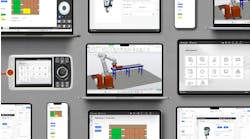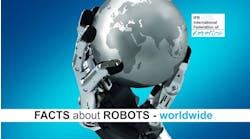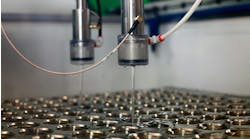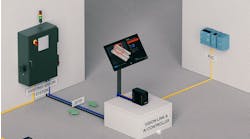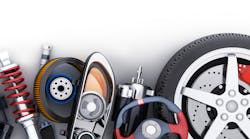by Jinshan Hong and Bruce Einhorn
The U.S.-China trade war threatens to make September a very slow month at E.D. Opto Electrical Lighting Co.’s auto-parts factory in the eastern Chinese city of Zhenjiang.
With President Donald Trump slapping tariffs on items like car gaskets and ignition wiring sets in July, American buyers of the company’s LED car lights pushed hard over the summer to get their orders delivered early in case they got caught up in the next salvo. Now, with the U.S. poised to target another $200 billion of Chinese goods as soon as this week -- including the car lights made by E.D. Opto -- export manager Melissa Shu wonders what’s going to happen to the business.
“If the tariffs are implemented, we’ll have trouble selling our products,” Shu said. “Customers might ask us to reduce our prices but the cost of raw materials has been soaring.”
As relations between the U.S. and China deteriorate, small suppliers like the car light manufacturer and their U.S. customers are being caught in the middle. Auto-parts makers were already grappling with spikes in the cost of steel and aluminum, and now the trade war is threatening to upend an industry that’s become increasingly dependent on the U.S. China’s exports of auto parts to the U.S. increased almost 18% between 2012 and 2017 to hit $17.6 billion last year, according to data from the U.S. Commerce Department.
Companies such as E.D. Opto, which has only 125 employees and exported about 50 million yuan ($7.3 million) in parts last year, are in the direct line of fire. Further down the supply chain, David Ni’s company buys aluminum alloy wheels from Chinese makers and exports them to retail outlets in the U.S. He’s weighing whether to give up some of its thin profit margin to hold onto customers. The company will likely raise its prices as much as 5% at the same time.
“The U.S. is the largest auto after-market in the world,” said Ni, chief executive officer of Jiangsu Siborui Import and Export Co., which employs 30 with $3 million in sales. “It’s irreplaceable.”
The company also began operating a US subsidiary in Anaheim, California last year. The company’s wheels are premium items, and Ni said he fears that tariffs will curb demand for them.
Many auto parts come from the small and medium-sized enterprises that have been the backbone of China’s industrial ascent and are the workshops of the global manufacturing supply chain. Small and medium-sized businesses account for more than 60% of China’s gross domestic product and private enterprises, mostly SMEs, made up 47% of exports in 2017, according to government data.
Growth at Risk
Before talk of a trade war started, Chinese auto-parts makers exporting to the U.S. had reason to be optimistic about 2018. They exported about $9.8 billion to American customers in the first six months of the year, almost 13% more than the same period a year earlier, according to U.S. Commerce Department data.
Now that growth is at risk. Windshield wipers, bumpers, mufflers and car seats are among the list of products published by U.S. Trade Representative Robert Lighthizer in early July that the U.S. plans to penalize next.
That’s bad news for the Chinese producers, who can do little to stave off an increase in costs for buyers. Janny Zhou is an export manager at a Chinese maker of auto-engine parts with 200 employees in the eastern city of Taizhou. Most of Zhou’s U.S. customers who usually place recurring orders every month didn’t put in for deliveries in August, she said. That’s added more pressure, as the company is already facing higher tariffs on some of its products that were targeted in the first round of U.S. levies.
“We haven’t heard from practically any of our clients,” said Zhou, whose customers include large auto parts retailers in the U.S. She declined to name them or her company because of confidentiality agreements. “We’re afraid to rush them for a decision since we can’t offer any discounts.”
U.S. Buyers
The problem for U.S. buyers -- companies like AutoZone Inc. and Advance Auto Parts Inc. -- needing to source cheap, high-quality parts is that many of the Chinese suppliers may also be hard to replace. Buyers have often spent years developing supply chains of reliable manufacturers that can meet quality controls and shipment schedules.
Still, some customers in the U.S. are trying to look for alternative suppliers. Hopkins Manufacturing Corp., a supplier of aftermarket auto parts based in Emporia, Kansas, sources from about 45 Chinese factories but is considering using suppliers in Taiwan instead, its chief executive officer Brad Kraft told Bloomberg News in August.
At E.D. Opto Electrical Lighting, export manager Shu said she’s concerned that as the trade war drags on between the world’s two biggest economies, the relationships that her company took years to build may be destroyed forever.
“Buyers might not return,” she said.
